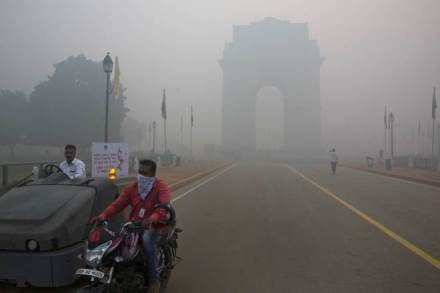Environment Pollution Control Authority chairman Bhure Lal’s remarks about banning the use of private vehicles from November 1 onwards, although drastic, will definitely not be enough to curb pollution. At this point, some of this seems routine for Delhi and the NCR. Odd-even schemes and, recently, the allowance by the Supreme Court (SC) for only green or zero-emission firecrackers, are the episodic measures that have been used, and still continue to be, to combat this methodical pollution. But, these don’t work in combating the actual source of this scourge. Odd-even didn’t work because, while vehicles accounted for around 9% of the city’s pollution, just a tenth was due to 4-wheelers that were affected by odd-even. And pollution due to the bursting of firecrackers is relatively small, compared to road dust that contributes 56% and 38% of Delhi’s PM10 and PM2.5 pollution, respectively, and crop stubble burning that, according to a Harvard study, is responsible for 50% of the pollution in October and November in the NCR.
The SC’s banning of 15 and 10 year-old petrol and diesel vehicles, respectively, although important and progressive, should be accompanied by measures that increase the forest cover of the land and provide farmers with an alternative to burning the remains of their crops. The Aravallis have been violently and mercilessly cut away at, in the name of urbanisation and development, despite safeguards in place to prevent the indiscriminate cutting of its trees. And, due to ill-devised crop growth patterns, water-guzzling paddy is grown in regions that are more suited for low water-use crops. The extra resources that are needed to harvest paddy in time for the sowing of wheat thus places huge cost burdens on farmers who are then forced to burn the remains of paddy crops. Though both Punjab and Haryana governments have introduced renting of machines, and subsidies for the same, that are part of the mechanised alternative, as per Down to Earth, the available lot can cover just a fifth of the acreage under paddy in Haryana in the short period farmers have between the harvest and sowing period. Further, keeping aside issues of implementation, the banning of private vehicles only makes sense if there are plausible alternatives, but the public transport system might not be capable of handling these numbers, especially if the Delhi government continues to overlook the establishment of dedicated bus corridors, despite increased metro coverage. Short-term solutions might bring a few extra breaths, but it is only the long-term ones that will refill our lungs again.
